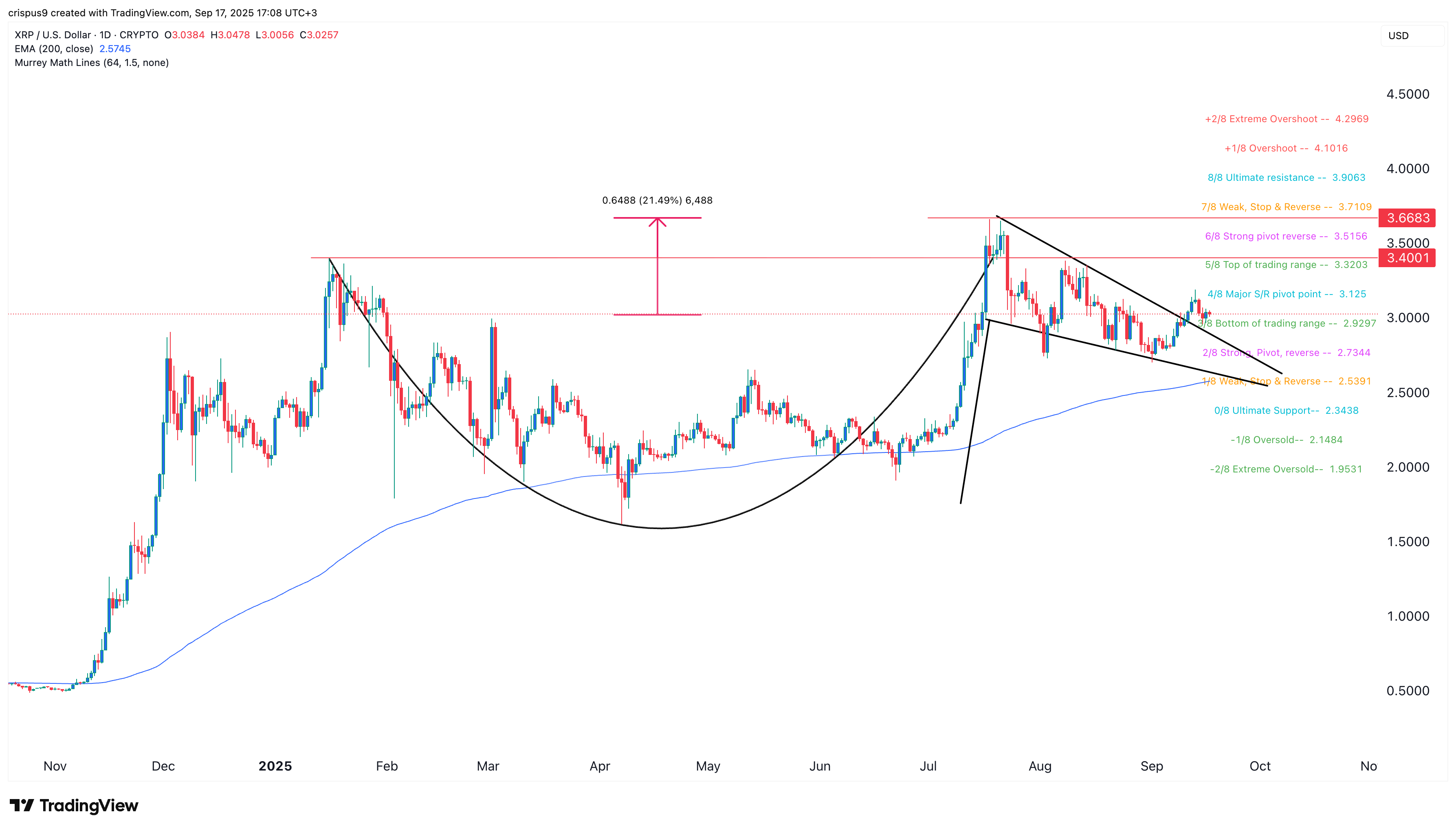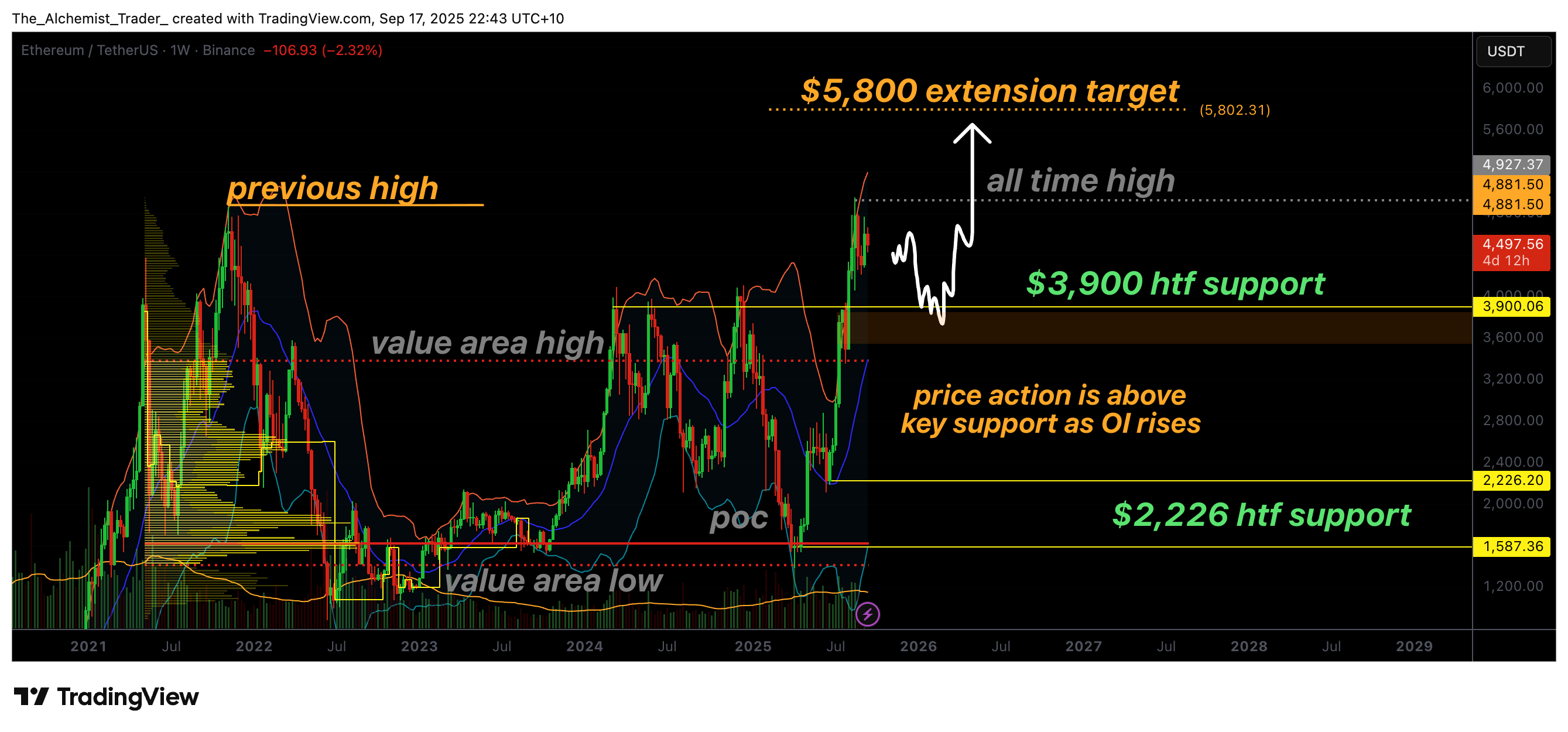SEC delays Ethereum ETF staking decisions for BlackRock, others

The U.S. SEC has once again hit the brakes on key crypto ETF decisions. This time, the regulator is delaying approvals for Ethereum staking proposals from top financial giants like BlackRock, Fidelity, and Franklin Templeton, leaving the crypto market watching closely.
Summary
- The SEC has postponed decisions on crypto ETF proposals targeting Ethereum staking, Solana, and XRP.
- Staking addition for BlackRock’s iShares Ethereum Trust now awaits a final decision by October 30, while that of Fidelity Ethereum Fund and Franklin Templeton were both extended to November 13.
- More than 90 crypto ETF applications remain pending as the Commission continues to push back review dates.
The U.S. Securities and Exchange Commission (SEC) has extended the deadline for its decision on ETF proposals seeking to add staking features and track major altcoins. Per a Sept. 10 filing, the commission postponed its ruling on BlackRock’s proposal to allow Ethereum (ETH) staking within its iShares Ethereum Trust.
Originally due September 15, the decision has been pushed to October 30, 2025. If approved, it would be the first exchange-traded fund of its kind.
Citing the reason for the delay, the SEC said it needed additional time to review the proposals.
“The Commission finds it appropriate to designate a longer period within which to take action on the proposed rule change so that it has sufficient time to consider the proposed rule change and the issues raised therein,” the agency wrote.
In addition, the regulator also extended the review period for Fidelity’s proposal to add staking features to its Ethereum ETF, pushing the deadline to Nov 13. BlackRock, Fidelity and Franklin Templeton are not alone in facing setbacks on staking ETFs. Other delays includeOther delays include CBOE’s 21Shares Ethereum ETF, now due October 23, and NYSE’s Grayscale Ethereum ETF, postponed to October 29.
This wave of delays suggests the SEC is treading cautiously, especially around staking products, which have historically triggered concerns regarding custody, market manipulation, and investor protection.
Beyond staking ETFs, other applications were also delayed. The agency assigned a Nov 14 deadline for Franklin Templeton’s proposals to launch funds tracking Solana (SOL) and XRP (XRP).
Why is the SEC delaying crypto ETFs?
While the SEC refrained from giving specific reasons beyond ‘needing more time,’ the broader context suggests regulatory unease around staking mechanics and altcoin classifications. The Commission may also be buying time to finalize its proposed Generic Listing Standards, a rule framework designed to streamline the listing process for crypto-based ETFs.
If adopted, this could allow funds to bypass the traditional Form 19b-4 process and gain approval after a 75-day review period.
Meanwhile, there has been a growing institutional interest in crypto investment vehicles in the past few months, thanks to the crypto-friendly climate under the administration of Donald Trump and the SEC Chairman, Paul Atkins.
Still, more than 90 crypto ETFs remain in regulatory limbo. The SEC has remained conservative in its approach to launching more crypto ETFs following Bitcoin and Ethereum’s approval in early 2024, and for now, the crypto industry is on edge as October and November deadlines approach.




